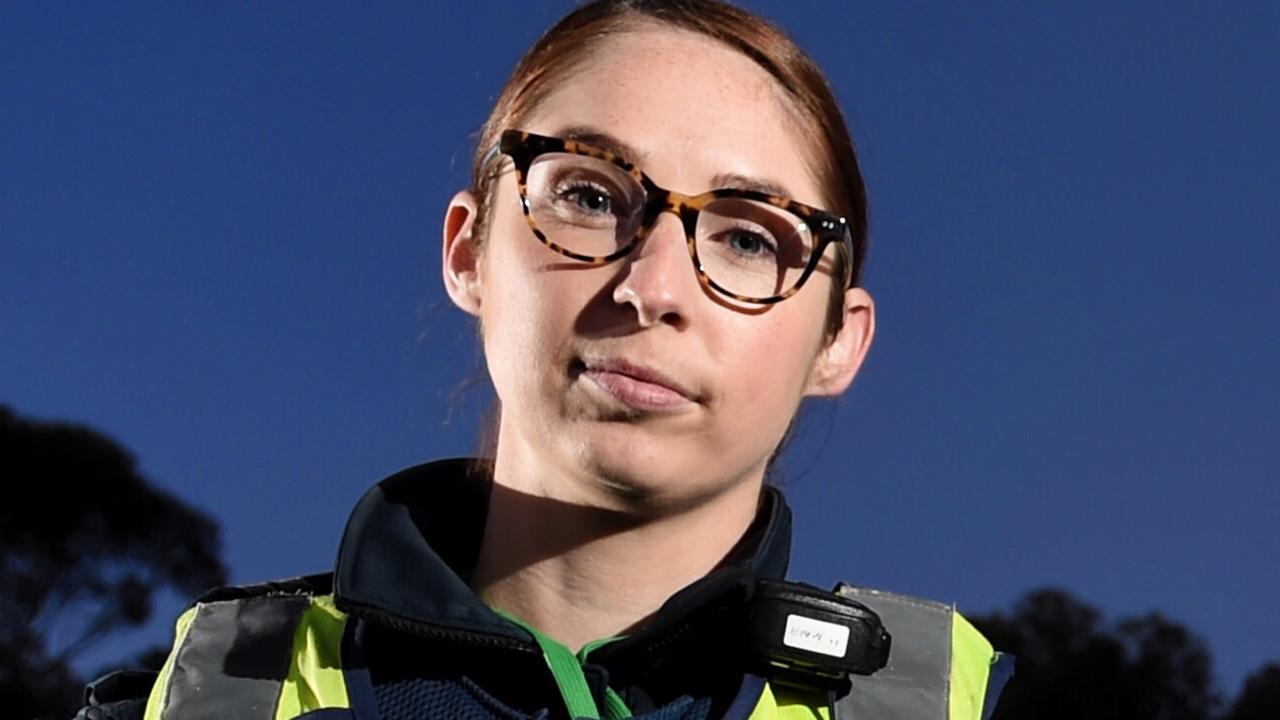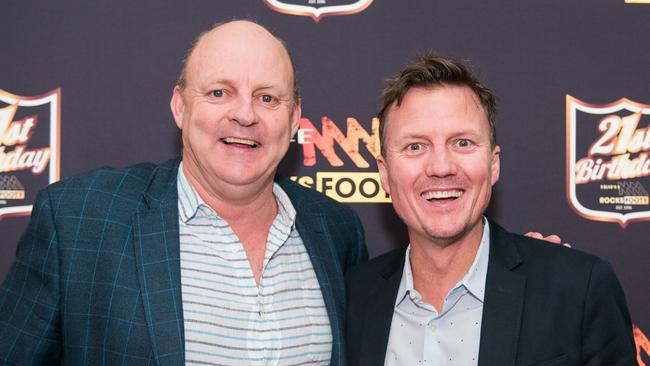Labor MPs worried whether campaign army was above board
WHEN Labor MPs received a request last year for more personnel before the November election, some smelled a rat.
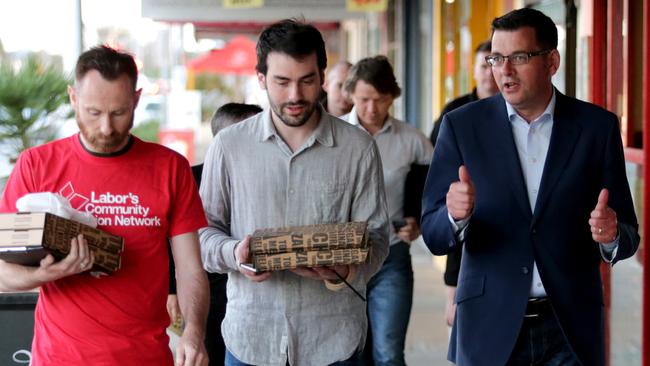
VIC News
Don't miss out on the headlines from VIC News. Followed categories will be added to My News.
WHEN Labor MPs received a request last year for more personnel before the November election, some smelled a rat.
Then Opposition leader Daniel Andrews wanted to build a bigger army of campaign staff to hit more doors and phones.
As one senior party figure told the Herald Sun: “They got greedy. We had enough — we didn’t need more.”
The question asked, quietly by some MPs and more audibly by others, was: Is this above board?
Concerns centred on whether taxpayer-funded electorate officers could be sent to work on the broader election campaign through the “Community Action Network”.
Was this the work of an electorate officer looking after the needs of constituents?
“People did wonder, but we were told it was all OK,” one MP said.
RORTS FOR VOTES IN LABOR ELECTION FUNDING SCANDAL
JAMES CAMPBELL: SCANDAL MUST BE INVESTIGATED
A pooling of electorate officers for “research” and other central uses had already been going on for years.
But the extra call-out for staff worried some MPs.
But questions or concerns fell on deaf ears or were brushed aside, and the practice continued at pace.
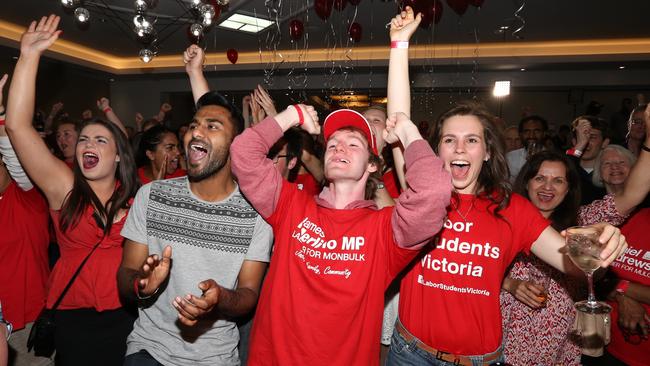
A volunteer who worked on the campaign said there was disquiet about how taxpayer funds were used.
“There were a number of MPs that were troubled by the way field officers were paid,” the source said, “because if we won, ‘she was apples’; if we had lost, then there would have been a lot of people strung up.”
This may have led to an internal fight, or more scrutiny, the source said.
The electorate officers in question were recruited as campaign field organisers.
In turn, they were in charge of recruiting volunteers to don red shirts and tell voters why they should vote Labor.
According to one of the directors of the network, 5500 volunteers were operating.
At its peak, Labor had almost three dozen paid staff working full time in the field.
Insiders say that, all up, its field operation cost at least $1.5 million, puzzling some insiders as to why MPs were being asked to provide bodies.
In concert with union members, the network was a powerful campaigning tool, described by Mr Andrews as something “no political party in this country has ever tried, let alone achieved”.
After the election, he paid credit to the army he helped create, describing it in his election night speech as “central to this victory”.
In July, addressing a Federation Square rally attended by 700 of the volunteers, Mr Andrews said: “You changed minds, you changed votes, you changed the government and you’re changing Victoria. We are in this for the long haul, and we are not going away.
“The Community Action Network is, make no mistake, no one-campaign wonder. But if we work hard, and then work harder again, we can make sure that Tony Abbott is a one-campaign wonder.”
Mr Andrews’s wife, Catherine, told the volunteers: “You should be in no doubt that Dan and I will always be indebted to you. The Community Action Movement changed our party and together we changed the government.”
Mr Andrews’s rallying cry for volunteers on the Community Action Network site reiterates how important he sees it to be.
“On 29 November 2014, you changed the way campaigns are run in this country forever and you helped change a government. That’s the Victorian way. But we have more communities to organise. I can’t do this without you and we can’t do this without each other. If we don’t build now, we’ll have nothing to stand on in the future,’’ he said.
The site, at thisislabor.org, boasts that it took “direct action and changed a government’’.
In 2014, ALP assistant state secretary Stephen Donnelly was put in charge of setting up the system, modelled on President Barack Obama‘s Organising for America network.
A trial had been run in 2013, which Labor has credited with enabling the party to hold some political furniture in the Rudd government wipe-out.
Mr Donnelly had seen the US campaigning first-hand and worked with Sam Schneidman, who visited from the US, where he had experience in grassroots activism.
Both have claimed it was their brainchild.
Schneidman’s Linked In account says: “Conceptualized and implemented the Australian Labor Party’s first centrally co-ordinated, data-driven grassroots organising campaign strategy. Our strategy generated the largest known grassroots organisation in Australian politics.’’
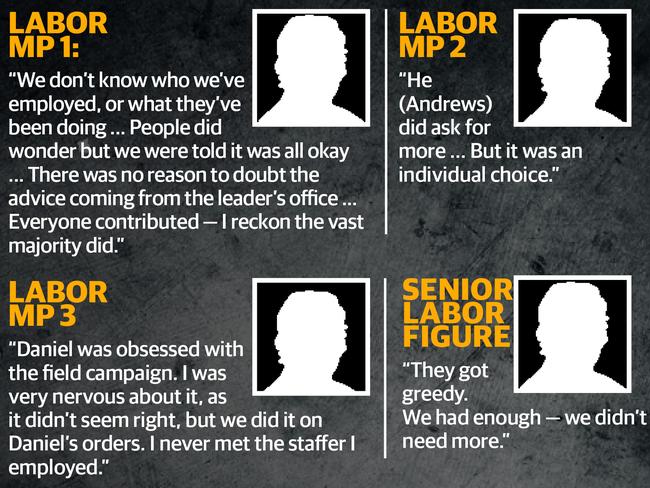
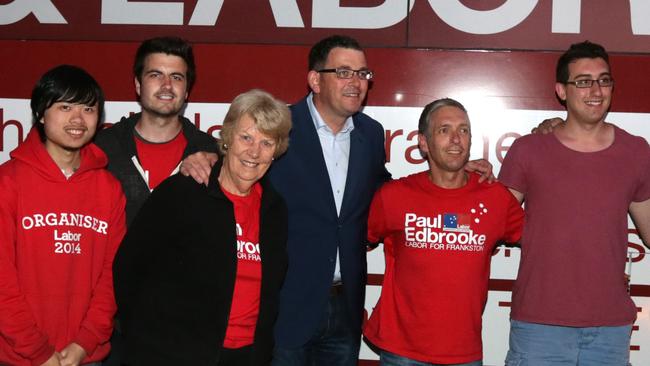
The campaign was huge, culminating in an unprecedented phone-call and doorknocking blitz in 25 marginal seats, aimed mainly at undecided voters.
The army needed had to be vast, and it was: more than 5500 volunteers, co-ordinated by 250 volunteer leaders.
But the control centre for the campaign was 35 paid field staff, hired for their skills and experience running events or call centres, or in similar roles, who recruited the volunteers and leaders and supported them through the process.
Mr Donnelly revealed to the Herald Sun during the campaign that it had even been road-tested in the 2013 federal election, albeit without the support of then prime minister Kevin Rudd.
“Daniel Andrews saw it operate in the federal campaign for Isaacs and said, ‘Yeah, I want it for next year. Let’s do this’,” he said last year.
Mr Donnelly acknowledged that Mr Andrews had been partly motivated by money.
“The Liberal Party is going to spend much more money on ads and direct mail then we can,’’ Mr Donnelly said.
“But they do not have an army of volunteers that are passionate about shared common values and a desire to change the government.
“To give you an example, in the seat of Frankston, by the time the election comes, we will have called through the entire list of electors 1½ times.
“With the media block (on television ads) from Wednesday, there will be silence from our opponents while we are making a s---load of phone calls. We will be calling right up to election night.”
One organiser Clare Keyes-Liley, told The Australian last year that the volume of calls her team made had disturbed meditation classes next door.
Federal Opposition Leader Bill Shorten, at the rally in July, said: “It is possible, through people power, to turn bad conservative governments into one-term governments.’’
Labor will hope questions on funding of the network does not derail its government less than a year into its first term.

